Professional electromyography testing that pinpoints exactly what’s causing your muscle weakness, numbness, or tingling.
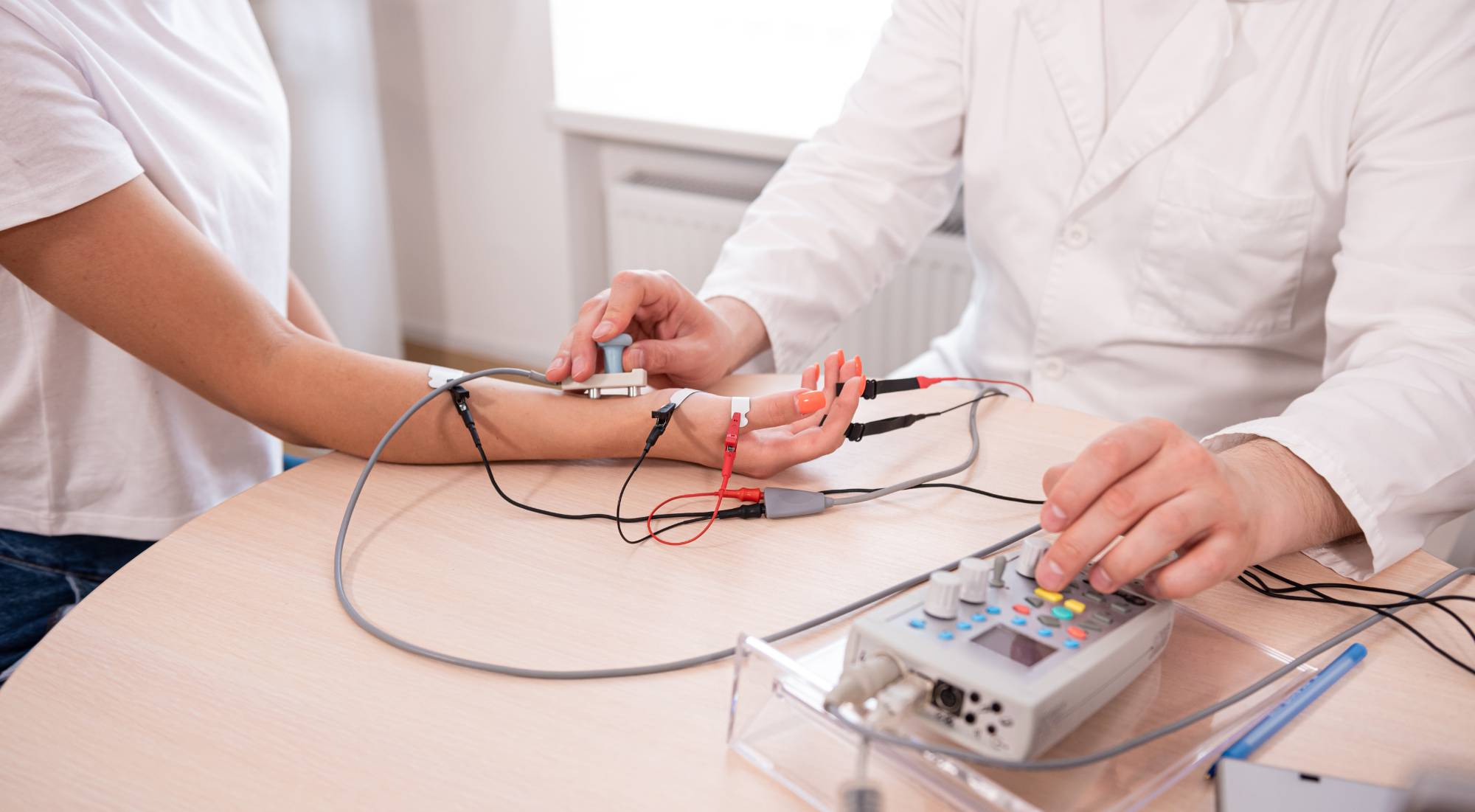
Reviews
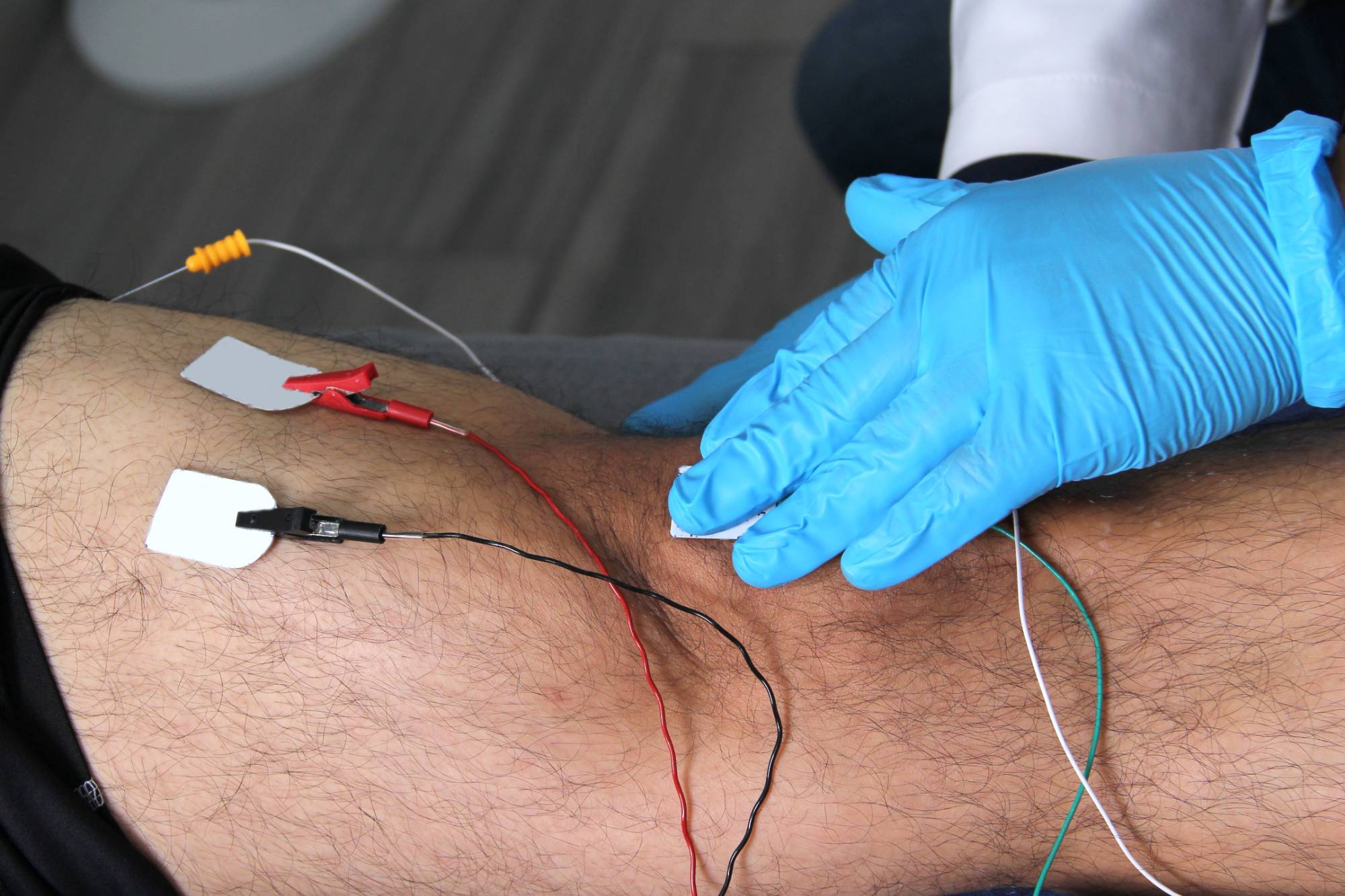
You’ve been dealing with unexplained muscle weakness, nerve pain, or that frustrating tingling sensation for too long. EMG testing gives you concrete answers about what’s happening in your nerves and muscles.
This isn’t guesswork. Electromyography measures the electrical activity in your muscles and nerves, showing us exactly where problems exist and how severe they are. You’ll know if that numbness in your hands is carpal tunnel, if your back pain involves nerve compression, or if your muscle weakness has an underlying cause that needs immediate attention.
The test results guide your treatment plan. Instead of trying different approaches and hoping something works, you’ll have a clear roadmap based on objective data about your nerve and muscle function.
NY Spine Medicine has been providing comprehensive pain management and diagnostic services to South Florida patients for years. We specialize in advanced diagnostic testing, including electromyography and nerve conduction studies.
Located in Miami Springs, we serve patients throughout Miami-Dade County who need accurate nerve and muscle testing. We understand that getting clear answers about your symptoms is the first step toward effective treatment.
Every EMG test is performed by our board-certified physicians who interpret results the same day, so you’re not left waiting and wondering about your condition.
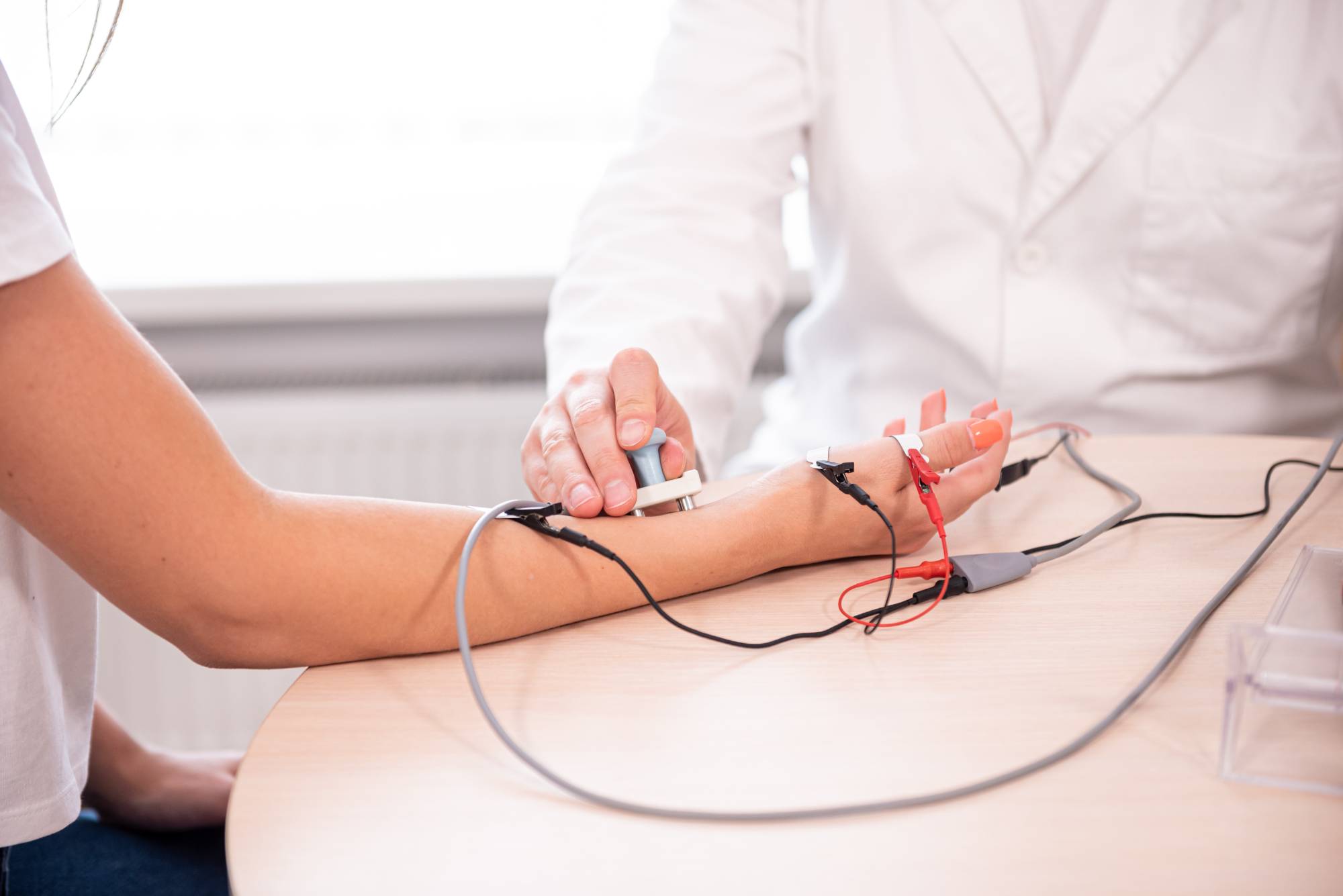
The EMG test has two parts that work together to give you complete information. First, we perform nerve conduction studies using small electrical pulses to measure how well your nerves transmit signals. You’ll feel brief, mild electrical sensations, but nothing painful.
Next comes the electromyography portion, where thin needle electrodes are inserted into specific muscles to measure electrical activity. The needles are much thinner than those used for blood draws, and most patients tolerate this part well.
The entire process typically takes 30-60 minutes depending on which nerves and muscles need testing. You’ll get your results immediately after the test, along with a clear explanation of what the findings mean for your condition and treatment options.
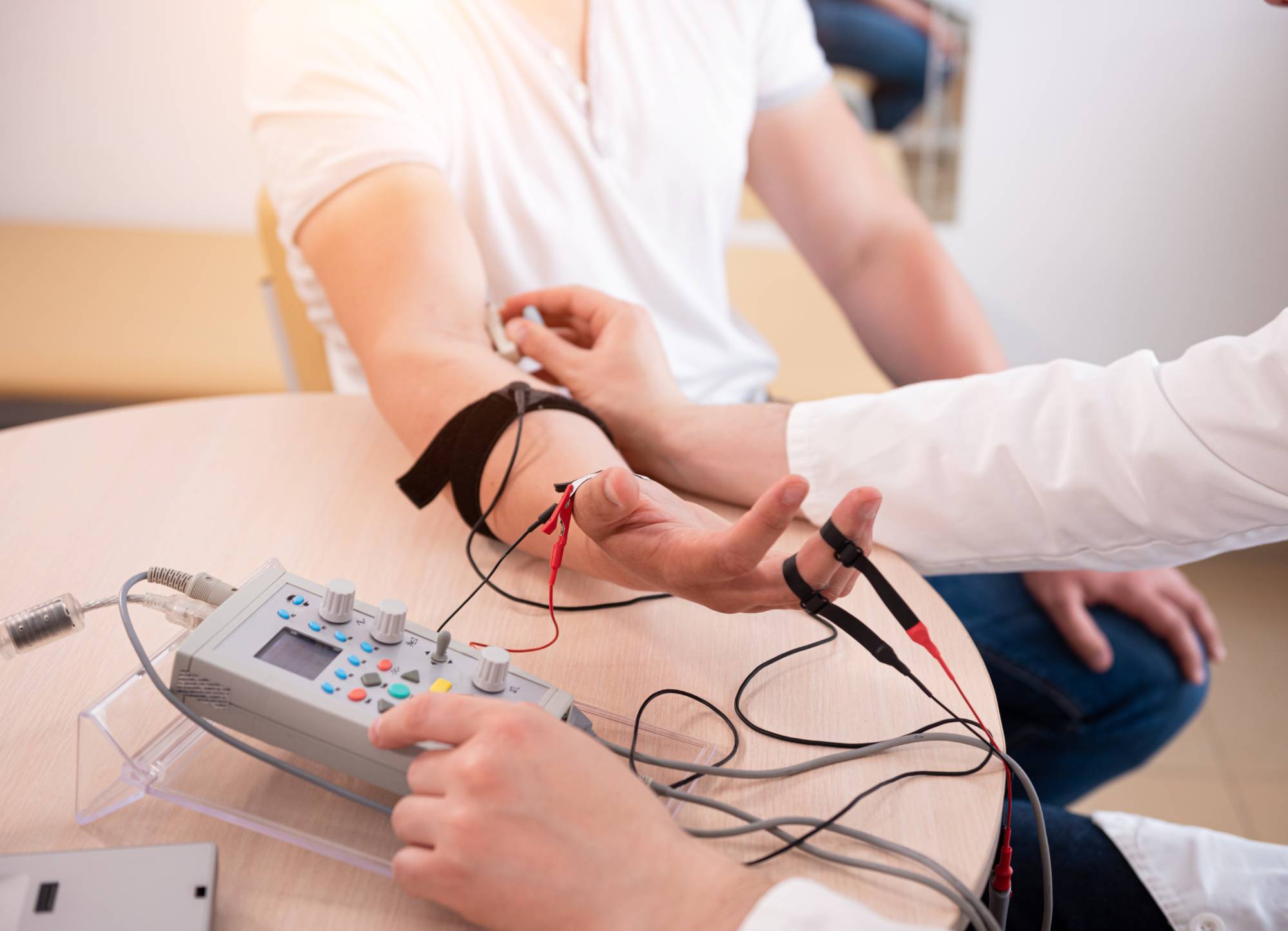
Ready to get started?
Your EMG testing includes both nerve conduction studies and needle electromyography to evaluate different aspects of nerve and muscle function. This comprehensive approach catches problems that single tests might miss.
We test for common conditions like carpal tunnel syndrome, diabetic neuropathy, pinched nerves, muscle disorders, and nerve injuries from accidents or repetitive strain. The testing can also rule out serious conditions like ALS or muscular dystrophy when those concerns exist.
You’ll receive a detailed report that your referring physician can use immediately, plus our recommendations for next steps. If treatment is needed, we coordinate with your other healthcare providers to ensure you get appropriate care without delays.
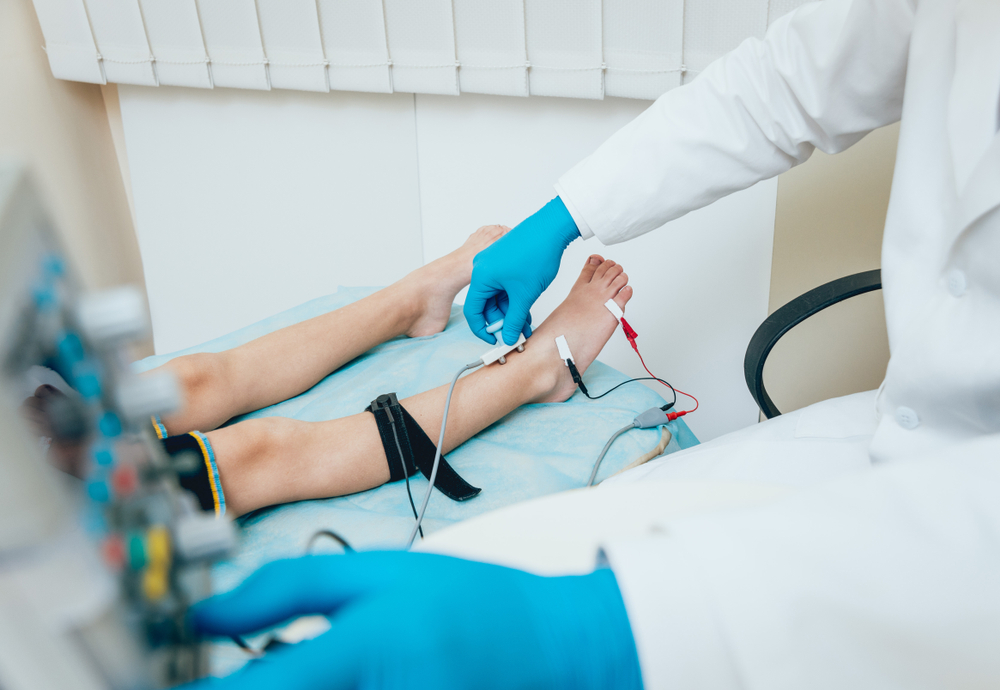
New York:
Florida:
Support